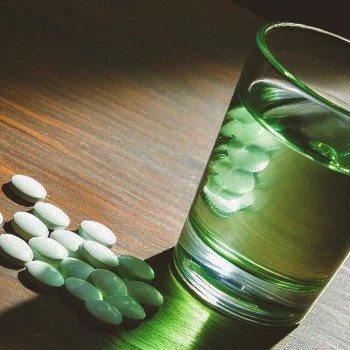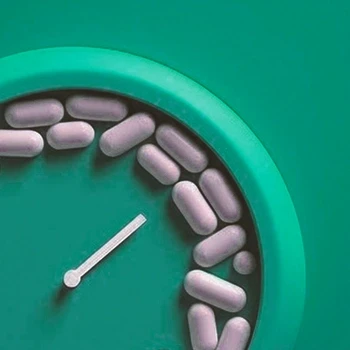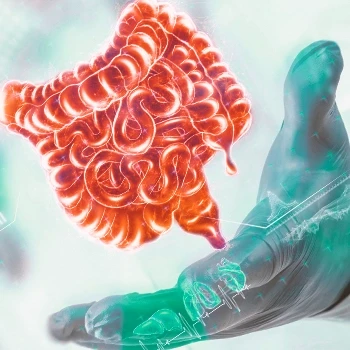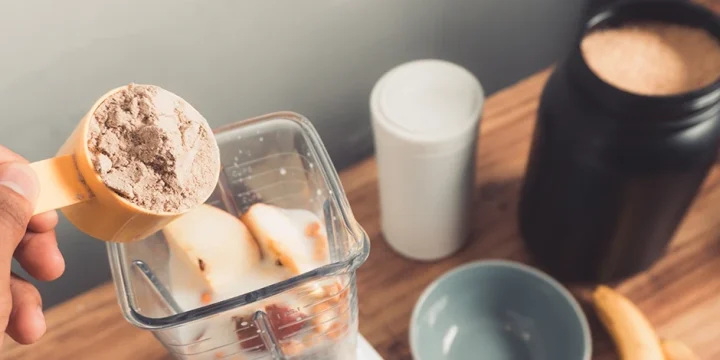As a medical doctor, I understand very well the benefits of probiotics in gut health. But is it safe to combine them with vitamins? and will vitamins make probiotics any less effective?
There's no risk of safety when you combine both at least according to the latest studies nor will they make your vitamins or probiotics less effective.
Make sure to always use high-quality vitamins and proven probiotics and buy from a reputable company.
There's more to this than a yes or no answer, that's why I've decided to tell you what I know about both vitamins and probiotics and what happens when you combine them.
Quick Summary
- You can combine probiotics with vitamins, as they won't make them any less effective.
- The combination of vitamins and probiotics helps reduce anxiety, depression, and stress.
- Our bodies require 13 types of vitamins, which are classified into water-soluble (Vitamins C and B) and fat-soluble vitamins (Vitamins A, D, E, and K).
- From my experience, the synergy between probiotics and vitamins can be a game-changer for those seeking a balanced and healthy lifestyle.
Can You Combine a Probiotic and a Vitamin?

Yes, you can combine a probiotic and a vitamin. It won't risk your health, neither is the combination less effective than when taken separately. In fact, they might be more effective when taken together.
"There is some evidence that when probiotics are consumed with omega-3 fatty acids, it may actually improve the delivery of the probiotic."
- Will Bulsiewicz, M.D., MSCI
As a medical doctor, I always encourage my patients who suffer constant constipation, yeast infection, and bowel conditions to take probiotics as it helps them have the optimal amount of gut flora for better gut health.
In turn, it makes the vitamins more absorbable, as it leads to positive health effects, such as:
- Fatty chains breakdown
- Better vitamin absorption
- Proper metabolic functions
A 12-week-long research done by the Journal of Ovarian Research on 60 women with Polycystic ovarian syndrome (PCOS) showed that combining Vitamin D and a probiotic was mentally beneficial to the women [1].
The combination leads to a more healthy lifestyle, a stronger immune system, and:
- Reduced depression, stress, and anxiety
- Improved hirsutism and total testosterone concentrations
- Beneficial impact on inflammation and oxidative damage
In addition, a 2023 study published by the National Library of Medicine showed that combining probiotics and vitamin D had no negative side effects for MMA fighters. In fact, it benefited their anaerobic performances due to enhanced lactate utilization [2].
Caution
While it can be beneficial to combine probiotics and vitamins, there’s still reason for caution.
As a physician, I always discourage people with a sensitive digestive tract and weak immune system from combining supplements.
More caution should also be considered for people with critical illness or recently had any type of surgery. But it's best to look at the cases individually.
Does Taking Probiotics With Vitamins Affect Absorption?
Taking probiotics and vitamins enhances nutrient absorption. Studies in the National Library of Medicine (NLM) confirm that probiotics increase the uptake of vitamins from supplements and food.
One NLM study revealed probiotics improved absorption of vitamin B12, B9 (folate), iron, calcium, and zinc [3]. Certain probiotic strains even produce B vitamins, boosting their availability.
Another 2017 NLM study found that probiotics in teens led to better absorption of Vitamins A and D, along with iron, calcium, and zinc from their diet [4].
The Role Of Vitamins

In my medical career, I've observed the vital role vitamins play in health. They supply essential nutrients our bodies can't make. Many patients have seen great benefits from proper vitamin intake.
Ideally, we should get all essential vitamins from our diet, but those with health issues or dietary deficiencies might need supplements.
Our bodies require 13 types of vitamins, categorized into:
- Water-soluble vitamins: These don't store in the body; excess is excreted in urine. Examples include Vitamins C and B.
- Fat-soluble vitamins: These are absorbed and stored more easily. Examples are Vitamins A, D, E, and K. Be cautious with intake, as overconsumption can be toxic.
Note: Be careful with how many fat-soluble vitamins you consume, as they can become toxic.
The best way to determine what vitamins you need is through a blood test.
Health Benefits Of Vitamins

If you exercise regularly and have a healthy diet, chances are you won’t need any other medications.
But, certain medical conditions, such as cancer, diabetes, or diarrhea, can trigger a deficiency. In these cases, individual nutrients are used, usually in doses larger than a typical multivitamin.
Vitamins can be used to treat conditions such as iron deficiency or hypertension.
Here are some common vitamins that one may need depending on the body’s requirement:
- Vitamin B3 — Raises high-density lipoprotein (HDL), i.e., the good cholesterol.
- Vitamins C and E — Called antioxidants, help patients tolerate the effects of chemo.
- Folic acid — Reduces the risk of a baby born with a birth defect.
Note: Always use the prescribed dose, as overuse of supplements can cause toxicities.
Vitamin Risks
The FDA doesn’t regulate dietary supplements as strictly as pharmaceutical drugs. In fact, the FDA doesn’t even determine which ones are safe to use before they’re shipped to stores.
But, the FDA does have a list of harmful products and problems they can cause, such as:
- Vitamin A — when used with retinoid acne medications causes toxicity as per the National Institutes of Health [5].
- Vitamin E — increases blood thinners which leads to nosebleeds and bruising.
- Vitamin K — reduces the effectiveness of blood thinners.
- Vitamin B6 — When used for a long time, such as a year, can cause nerve damage.
- Vitamin C — Endangers the digestive system and causes diarrhea.
When to Take a Vitamin

When you should take vitamins depends on the kind of vitamin you’re taking. For example, multivitamins should be taken when you wake up in the morning and can be paired with a pre-breakfast probiotic supplement.
On the other hand, I always advise my patients to take mineral supplements, and fat-soluble vitamins with food to avoid an upset stomach.
A good rule is to consult with your healthcare provider. Follow their advice for a balanced diet, and check the expiration date of your supplements.
The Role of Probiotics

Probiotics are living organisms that improve gut health by adding good bacteria to the large intestines. They differ from vitamins in their biological nature. A balanced diet, especially including prebiotic-rich foods like garlic, onions, and asparagus, supports these beneficial bacteria.
Health Benefits of Probiotic Supplements
Unlike vitamins, a probiotic isn’t absorbed into the bloodstream but stays in the intestines, where it encourages the growth of good bacteria and gets rid of bad bacteria. This helps with immune function.
Two health conditions that a probiotic supplement can help with are:
- Irritable Bowel Syndrome (IBS)
- Clostridium Difficile (C. Diff)
Giving probiotics can also help with antibiotic-associated diarrhea by developing beneficial bacteria in your gut, which fights the bad bacteria, and helps your upset stomach calm down.
Probiotic Risks

Like vitamins, probiotic supplements aren’t sufficiently regulated by the FDA, especially the manufacturing process. As a result, we don’t know the quality of probiotic capsules available at pharmacies and health food stores.
If you have a pre-existing health condition, It's best to see a physician first to investigate your case individually before taking any supplement.
When to Take a Probiotic
From my personal observations and the feedback I've received from my patients, I've found that taking probiotics on an empty stomach, about half an hour before a meal, yields the best results. It's a piece of advice I stand by and often share in my practice.
If you're on antibiotics, space out the intake of probiotics and antibiotics by a few hours to ensure that the probiotics aren't immediately neutralized.
FAQs
What Food Is Rich in Probiotics?
Food that’s rich in probiotics includes yogurt, kimchi, kefir, fermented foods and vegetables, miso, and kombucha.
Can I Take a Probiotic With Other Supplements?
Yes, you can take a probiotic with other supplements. In fact, many probiotics offer vitamin and mineral supplements for more health benefits.
Should I Take a Larger Dose of Vitamins and/or Probiotic?
No, you shouldn't take a larger dose. There aren’t any proven advantages to taking a larger dose. Always consult the recommended dosage before taking your preferred supplement.
References:
- https://www.ncbi.nlm.nih.gov/pmc/articles/PMC6340184/
- https://pubmed.ncbi.nlm.nih.gov/37193828/
- https://pubmed.ncbi.nlm.nih.gov/34578878/
- https://pubmed.ncbi.nlm.nih.gov/31646599/
- https://ods.od.nih.gov/factsheets/WYNTK-Consumer/
About The Author
You May Also Like






